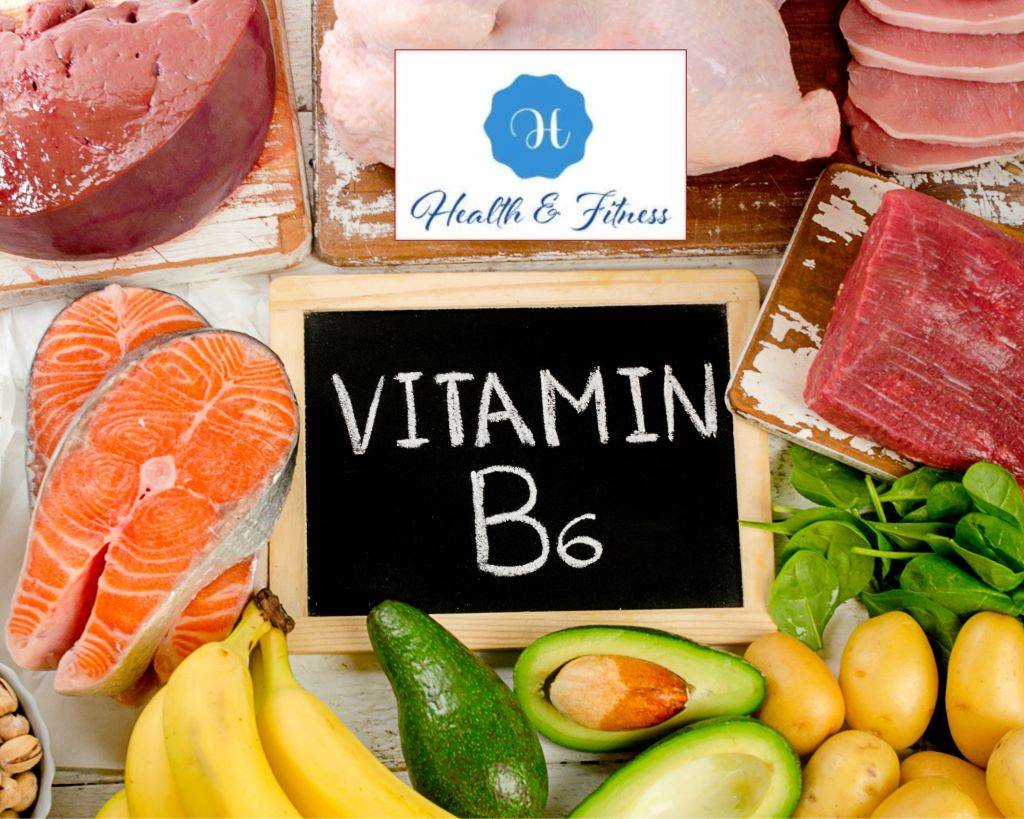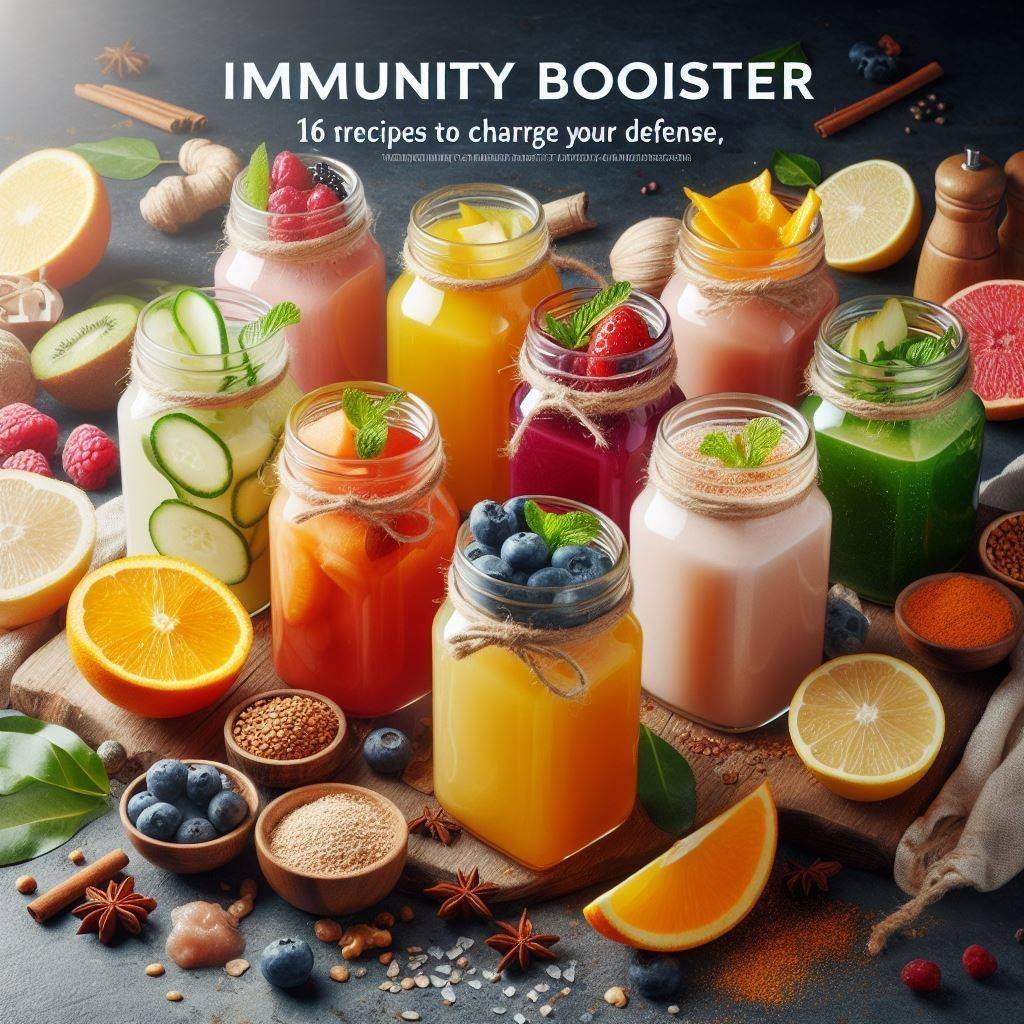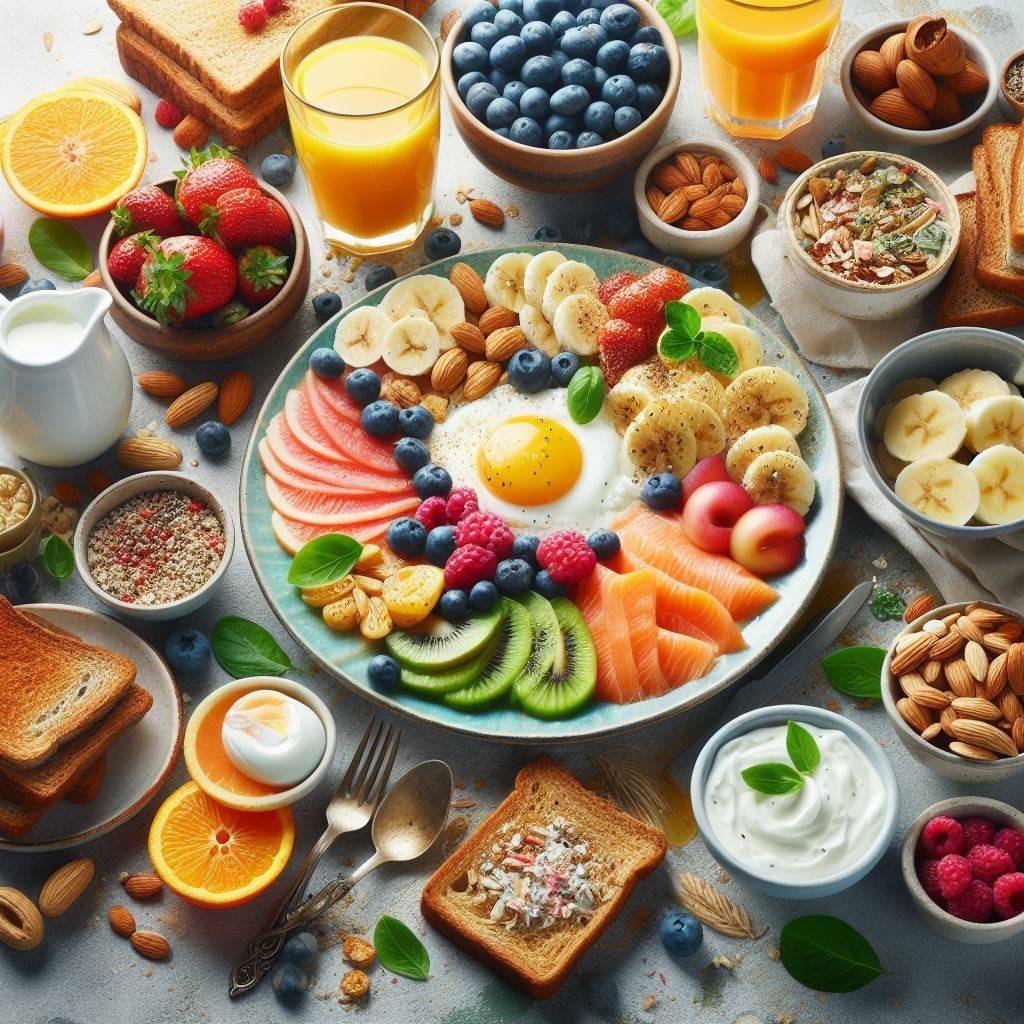The Best 6 Foods High in Vitamin B6: Boost Your Health!
Foods High in Vitamin B6: Discover a world of Vitamin B6-rich foods that can boost your health naturally. From salmon to bananas, explore delicious options packed with benefits. Enhance brain function, support heart health, and more. Start your journey to better well-being today!
Introduction to Foods High in Vitamin B6
Welcome to our comprehensive guide on Foods High in Vitamin B6! In this article, we’ll explore the vital role of Vitamin B6 in maintaining your well-being and how you can effortlessly incorporate these nutrient-packed foods into your daily diet. From succulent meats to vibrant fruits and vegetables, get ready to embark on a journey through the delectable world of Vitamin B6-rich foods.
Top Foods High in Vitamin B6: A Nutrient-Rich Lineup
For boosting your Vitamin B6 intake, a diverse array of delicious and nutritious foods awaits. Let’s delve into Vitamin B6-rich foods grouped by categories. These flavorful options not only tantalize your taste buds but also provide a substantial dose of this essential nutrient.
1. Protein-packed delights is the best food high in Vitamin B6
Salmon: This fatty fish isn’t just known for its omega-3 content; it’s also a prosperous source of Vitamin B6. A 3-ounce serving of cooked salmon provides approximately 0.6 milligrams of Vitamin B6, contributing to your daily needs while supporting heart and brain health.
Chicken: A versatile protein staple, chicken delivers a decent dose of Vitamin B6. A 3.5-ounce serving of cooked chicken breast offers about 0.5 milligrams of Vitamin B6, making it an excellent choice for muscle maintenance and growth.
Tuna: Elevate your seafood game with tuna, which boasts one of the highest Vitamin B6 contents. A 3-ounce serving of tuna supplies approximately 0.9 milligrams of Vitamin B6 and protein and omega-3 fatty acids for a wholesome boost.
2. Plant-Powered Goodness
Bananas: This universally loved fruit isn’t just rich in potassium; it’s also a source of Vitamin B6. A medium-sized banana contributes around 0.4 milligrams of Vitamin B6 to your daily intake, making it a convenient and sweet way to support your nutrient needs.
Chickpeas: These legumes shine with their versatility and nutritional value. A cup of cooked chickpeas delivers an impressive 1.1 milligrams of Vitamin B6. Incorporate chickpeas into salads, curries, or even hummus for a delectable nutrient boost.
Spinach: Popeye’s favourite leafy green doesn’t disappoint in the Vitamin B6 department, either. A cup of cooked spinach offers about 0.5 milligrams of Vitamin B6 and a bounty of vitamins and minerals for overall health.
3. Wholesome Staples
Potatoes: Whether mashed, baked, or roasted, potatoes are comfort food with nutrients. A medium-sized potato contains approximately 0.6 milligrams of Vitamin B6, adding flavour and health benefits to your plate.
Avocado: Indulge in the creamy goodness of avocados, which offer around 0.5 milligrams of Vitamin B6 per medium-sized fruit. Avocados also provide healthy monounsaturated fats for heart health.
Pistachios: These crunchy nuts satisfy your snack cravings and deliver a small yet meaningful amount of Vitamin B6. An ounce of pistachios contributes about 0.2 milligrams of Vitamin B6, fibre, and healthy fats.
Sunflower Seeds: Sprinkle these seeds on salads or yogurt, or enjoy them as a snack. An ounce of sunflower seeds offers around 0.4 milligrams of Vitamin B6, making them a convenient and flavorful addition to your diet.
4. Balanced and Flavorful Choices
Lean Meats: Besides chicken, lean meats like turkey and lean beef provide moderate amounts of Vitamin B6. Including various lean meats in your diet can contribute to your Vitamin B6 intake while offering essential proteins for muscle health.
Whole Grains: While not as high in Vitamin B6 as other foods, whole grains like brown rice and oats still make valuable contributions. These grains provide a well-rounded nutrient profile, including fiber and other B vitamins.
Fortified Cereals: Some cereals contain essential nutrients, including vitamin B6. Check the nutrition labels to find cereals that offer a significant percentage of your daily Vitamin B6 needs.
5. Dairy and Dairy Alternatives
Yogurt: Incorporate yogurt into your daily routine for a creamy and calcium-rich option. A serving of yogurt also contributes a handful of Vitamin B6 to your diet and probiotics for gut health.
Milk: Whether you prefer cow’s milk or plant-based alternatives like almond, soy, or oat milk, you’ll find a modest supply of Vitamin B6 in each serving. Enjoy it in your morning cereal, smoothies, or as a base for creamy sauces.
Cheese: Some types of cheese, such as mozzarella and cheddar, offer a minor dose of vitamin B6. While not a primary source, cheese can still contribute to nutrient intake.
6. Fruits Bursting with Flavor and Nutrients is the best food high in Vitamin B6
Watermelon: This hydrating and refreshing fruit contains a handful of Vitamin B6 and a wealth of vitamins and antioxidants.
Prunes: Enjoy prunes as a snack or add them to your oatmeal or yogurt for a hint of natural sweetness and Vitamin B6.
Baked Potatoes with Cheese: Top a baked potato with a sprinkle of cheese for a satisfying and flavorful combination that brings together a modest amount of Vitamin B6 and calcium.
Cheesy Veggie Omelets: Incorporate cheese into a veggie-filled omelet for a delicious, nutrient-packed breakfast or brunch option.
Incorporating Vitamin B6-Rich Foods into Your Diet
Wondering how to integrate these nourishing foods into your daily meals seamlessly? Let’s explore creative and effortless ways to elevate your intake of this vital nutrient:
Salmon and Chicken Stir-Fry
Craft a mouthwatering stir-fry featuring salmon or chicken as the protein hero. Colourful bell peppers, broccoli, and carrots join the party, bringing a burst of vitamins and minerals. Elevate the flavour with garlic, ginger, and a drizzle of low-sodium soy sauce.
Banana Smoothie
Blend a ripe banana with Greek yogurt, milk, and a drizzle of honey for a luscious and Vitamin B6-packed smoothie. Enhance the nutrition with a handful of spinach or a dollop of almond butter.
Loaded Baked Potatoes
Transform your baked potatoes into a nutritious delight by topping them with chickpeas, avocado, and a sprinkle of crushed pistachios for a delightful crunch. A dollop of Greek yogurt and fresh herbs completes this creamy masterpiece.
Spinach and Sunflower Seed Salad
Assemble a refreshing salad with fresh spinach leaves, cherry tomatoes, cucumber slices, and a generous sprinkling of sunflower seeds. Drizzle with a light vinaigrette for a revitalizing and nutritious dish.
Tuna Avocado Wraps
Create creamy and nutritious wraps by mixing avocado with canned tuna. Add chopped spinach and sliced bell peppers for an extra flavour punch. Wrap it all up in a wholesome tortilla for a portable and fulfilling meal so you will get the best food high in Vitamin B6.
Chickpea Curry
Prepare a hearty and flavorful chickpea curry using canned or cooked chickpeas. Infuse coconut milk, tomatoes, onions, garlic, and aromatic spices like cumin and coriander. Serve over brown rice or quinoa for a complete and satisfying feast.
Potato and Salmon Hash
Dice and crisp up potatoes, then combine with flaked cooked salmon. Toss in diced onions and bell peppers, and cook until warmed through. Crown it all with a fried egg for a protein-packed breakfast or brunch treat.
By infusing creativity into your meals, you effortlessly embrace Vitamin B6-rich foods, reaping their nutritional rewards.
The Health Benefits of Vitamin B6
Vitamin B6, or pyridoxine, is a powerhouse nutrient that offers an array of health benefits for your body. From bolstering brain function to nurturing heart health, Vitamin B6 is a crucial player in your overall wellness. Let’s delve into the various ways this essential vitamin enhances your health:
1. Brain Health and Cognitive Function
Vitamin B6 takes the spotlight in neurotransmitter synthesis, facilitating communication between nerve cells in your brain. These neurotransmitters, including serotonin, dopamine, and GABA, significantly influence mood, emotions, and cognitive performance. Maintaining adequate Vitamin B6 levels can contribute to improved mood and reduced symptoms of depression and anxiety.
Furthermore, Vitamin B6 is vital in producing hemoglobin, the protein responsible for transporting oxygen to your brain. A steady oxygen supply is essential for optimal brain function, enhancing memory, concentration, and overall cognitive abilities.
2. Metabolism and Energy Production
As a coenzyme in various metabolic reactions, Vitamin B6 is the driving force behind converting food into energy. It breaks down carbohydrates, proteins, and fats into glucose, amino acids, and fatty acids. These nutrients are the fuel that powers your daily activities, ensuring your body functions seamlessly. By supporting efficient metabolism, Vitamin B6 combats fatigue and elevates energy levels, empowering you to remain active and productive throughout your day.
3. Heart Health and Homocysteine Regulation
Vitamin B6’s lesser-known yet crucial role lies in regulating homocysteine levels in your bloodstream. Elevated homocysteine levels are associated with an increased risk of cardiovascular ailments, including heart disease and stroke. Working alongside B vitamins like B12 and folic acid, Vitamin B6 transforms homocysteine into harmless compounds. Maintaining balanced homocysteine levels, Vitamin B6 supports a healthy cardiovascular system and mitigates heart-related concerns.
4. Immune System Support
A robust immune system is your body’s defence against infections and diseases. Vitamin B6 plays a pivotal role in bolstering your immune system by fostering the production and activity of immune cells.
Immune cells, like lymphocytes and T-cells, rely on Vitamin B6 for optimal functioning. Additionally, Vitamin B6 contributes to antibody production – proteins that identify and neutralize harmful pathogens.
5. Hemoglobin Formation and Red Blood Cell Production
Vitamin B6 is the cornerstone of hemoglobin synthesis, the protein within red blood cells that binds to oxygen and facilitates transportation throughout your body. Maintaining sufficient Vitamin B6 levels is vital for developing and maturing red blood cells, ensuring a healthy circulatory system.
By supporting hemoglobin production, Vitamin B6 prevents anemia, a condition characterized by low red blood cell levels and compromised oxygen transport.
6. Skin Health and Collagen Production
Collagen, a structural protein, is essential for maintaining skin elasticity and firmness. Vitamin B6 contributes to collagen synthesis, healing wounds, and skin integrity. Besides collagen production, Vitamin B6 is an antioxidant, safeguarding your skin against oxidative damage caused by free radicals. This protection translates into a more youthful, radiant complexion.
7. Nervous System Support
Your nervous system is responsible for transmitting signals between your brain and the rest of your body. Vitamin B6 is pivotal in preserving nervous system health by supporting the myelin sheath – a protective layer enveloping nerve cells.
By ensuring optimal nervous system function, Vitamin B6 enhances nerve conduction and potentially reduces the risk of nerve-related conditions, such as carpal tunnel syndrome.
8. Hormone Regulation
Vitamin B6 wears the hat of hormone synthesis and regulation. It takes center stage in producing serotonin, a neurotransmitter crucial for mood regulation and cultivating happiness and well-being.
Furthermore, Vitamin B6 orchestrates the metabolism of hormones like estrogen and progesterone, making it indispensable for hormonal equilibrium. This balance is especially crucial for women during menstruation and menopause.
9. Supports Pregnancy and Fetal Development
The demand for Vitamin B6 skyrockets during pregnancy as it supports fetal growth and development. It is critical in forming the baby’s nervous system and brain. Moreover, Vitamin B6 can alleviate common pregnancy discomforts such as nausea and morning sickness. It’s often recommended for expectant mothers to increase their Vitamin B6 intake to ensure a healthy pregnancy journey for both mother and baby.
Conclusion for Foods High in Vitamin B6
Elevate your health with the flavorful world of Foods High in Vitamin B6. From relishing the delightful notes of salmon and avocados to savouring the wholesome goodness of chickpeas and potatoes, these nutrient-packed foods offer a treasure trove of health benefits. Whether you seek enhanced energy levels, reinforced immunity, or a heart in optimal shape, Vitamin B6-rich foods have your back.
Dive into this culinary adventure, experimenting with these delectable options. Your body will express gratitude for the valuable nourishment, and you’ll witness the transformative influence of a balanced diet on your holistic well-being. Remember, embracing health isn’t just about eating – celebrating the journey of nurturing your body with every satisfying bite! with the best food high in Vitamin B6
FAQs for Foods High in Vitamin B6
Q1: Which fruit is rich in vitamin B6?
Bananas are an excellent source of vitamin B6. They provide approximately 20% of the recommended daily intake of this essential nutrient.
Q2: What foods are high in vitamins B6 and B12?
Foods high in vitamin B6 include bananas, chickpeas, salmon, chicken breast, and sweet potatoes. Vitamin B12 is commonly found in animal-based foods like meat, fish, dairy products, and fortified cereals.
Q3: Are bananas rich in vitamin B6?
Yes, bananas are indeed rich in vitamin B6. They are a convenient and tasty way to boost your B6 intake.
Q4: What are the symptoms of low vitamin B6?
Low levels of vitamin B6 can lead to symptoms such as fatigue, weakened immune function, skin rashes, depression, confusion, and anemia. Maintaining an adequate intake of this vitamin is important for overall health.
Reference
Learn more about the benefits of Vitamin B6 from the National Institutes of Health.
Explore the role of Vitamin B6 in your diet with insights from the Harvard T.H. Chan School of Public Health.



